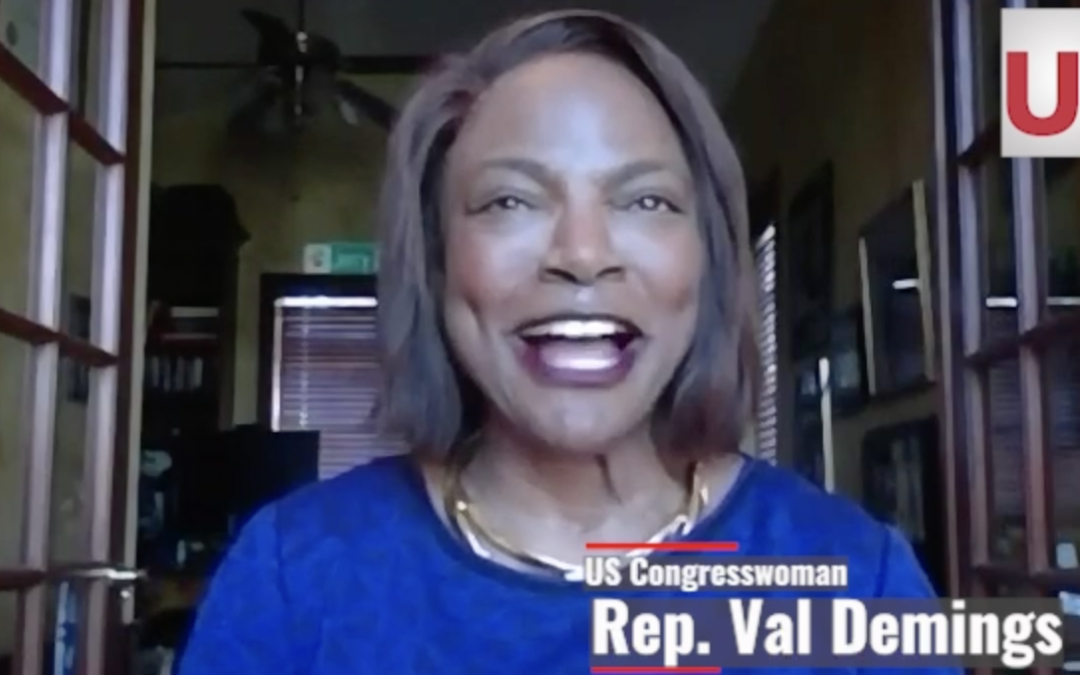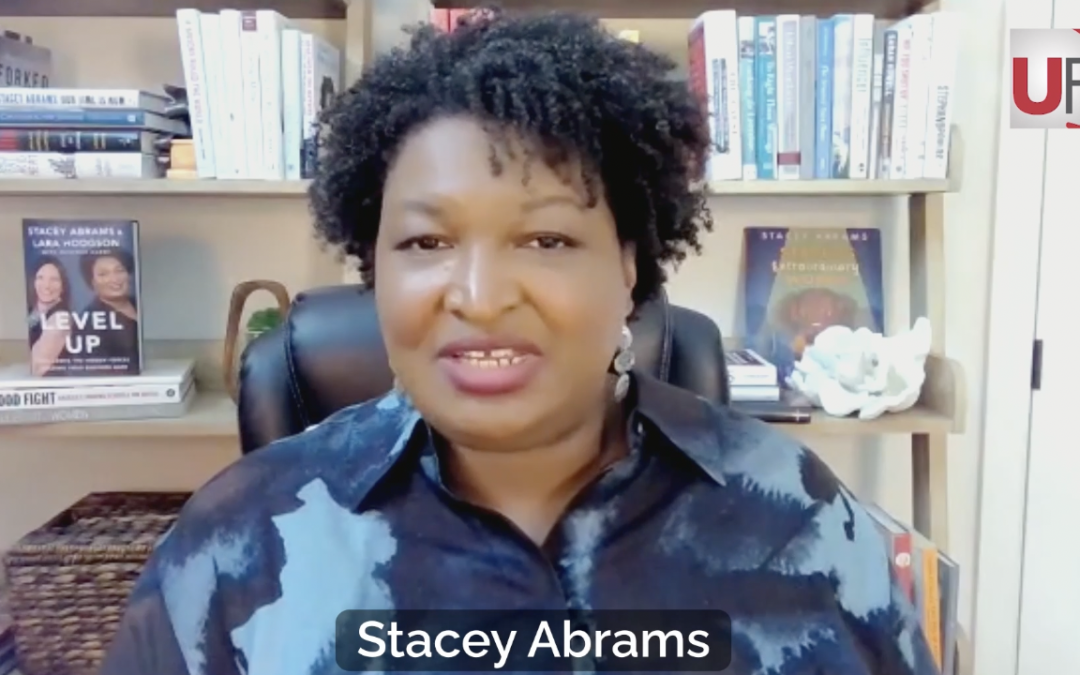
by Maina Mwaura, Urban Faith Contributing Writer | Sep 28, 2022 | Commentary, Faith & Work, Headline News |
Val Demings describes herself as “a little rough around the edges.” She says what she thinks and cares more about serving people than political partisanship. She was raised by Christian parents, graduated from Florida State University, and stayed in her hometown of Orlando. She was a career police officer and then police chief who helped reduce crime by 40% in Orlando while she served as chief of police. But an invitation to run for congress changed her life and catapulted her onto the national stage. She is now running for US Senate in Florida.
Above is an UrbanFaith exclusive interview with US Congresswoman Representative Val Demings on how she got started in politics, how she maintains her faith as a public servant, and her hopes for a united future for our nation.

by Maina Mwaura, Urban Faith Contributing Writer | Apr 5, 2022 | Black History, Commentary, Headline News, Social Justice |
We were honored to interview Stacey Abrams a woman who is making history daily. Stacey Abrams was the first African American major party nominee for Governor in Georgia, running again in 2022, is one of the most prominent advocates for voting rights in the nation, and is former Leader in the Georgia House of Representatives.
Stacey Abrams is a graduate of Spelman College and has been involved in public service for decades. What many may not know is that Ms. Abrams is the daughter of two ministers and her faith informs who she is and how she serves daily. UrbanFaith sat down for this exclusive interview to talk about faith, family, public service, voting rights, and Ms. Abrams historic run for governor. Full interview is above!
#staceyabrams #fairifight #georgia #abrams #voting #faith #umc #methodist #family #spelman
by Urban Faith Staff | Sep 11, 2012 | Feature, Headline News |

NEVER FORGET: President Barack Obama and First Lady Michelle Obama observed a moment of silence this morning on the South Lawn of the White House to mark the 11th anniversary of the 9/11 attacks. (Photo: Olivier Douliery/Newscom)
By the time more than a decade has gone by, most national calamities have faded intohistory, events to be marked but no longer acted upon. It’s different with 9/11.
The Islamic terrorist attacks of Sept. 11, 2001, still influence the United States’ politics, animate its military and fill its travelers with rage and chills. After sweeping commemorations on the 10th anniversary, the expressions of sadness and soul-searching have barely receded on the 11th anniversary today.
The occasion continues to challenge the nation.
The big challenge remains to be united, not divided, by the tragedy.
One way to use the moment as an inspiration for better things is to follow the suggestion of a Newport Beach-based group to make each Sept. 11 “a day of charitable service and doing good deeds.” The nonprofit organization MyGoodDeed promotes the idea, and says millions of Americans participate each year.
The roots of 9/11 Day are nonpartisan. It has been supported by President George W. Bush and President Obama, and its founders, David Paine and Jay Winuk, were spurred by the loss of Winuk’s brother Glenn, an attorney and volunteer firefighter who was among the 3,000 people killed in the World Trade Center.
The website 911day.org has information, including how to sign up for local volunteer efforts (which don’t necessarily require volunteers to be available today).
For the families who lost loved ones, the memory of 9/11 is acute every day, and they deserve special consideration on the anniversaries.
With that in mind, the directors of the National Sept. 11 Memorial and Museum decided that this year’s ceremonies at the site of the World Trade Center would not include speeches by politicians but instead would feature only a reading of victims’ names by relatives.
Naturally, the effort to rid the largest 9/11 commemoration of politics has drawn charges that the organizers are playing politics in retaliation for some New York-area elected officials’ criticism of the memorial foundation.
This points up the difficulty of unlinking 9/11 and politics.
While that memory no longer dominates voters’ thoughts, a poll showed 37 percent of voters still consider terrorism and security to be “extremely important” issues in the presidential election, not too far behind the 54 percent who give the economy and jobs such marquee billing.
Thus, earlier today Obama participated in a memorial service at the Pentagon and held a moment of silence at the White House. Mitt Romney will speak at the annual conference of the National Guard. The tug of war over the legacy of 9/11 continues.
The attacks can hardly be compared with any other national tragedy and scandal. But it is worth noting that the direct and emotional effects of many historical events had passed by the 11th year after. Think of the resonance of the John F. Kennedy assassination by 1974, the Watergate scandal by 1985, or the Challenger shuttle explosion by 1997.
Sept. 11, 2001, though, continues to reverberate on Sept. 11, 2012. It continues to move and challenge Americans. For those motivated to rise above the politics of the moment, calls to service such as 9/11 Day offer a way.
Reprinted from The Los Angeles Daily News, McClatchy-Tribune Information Services. Used by permission of Newscom.



